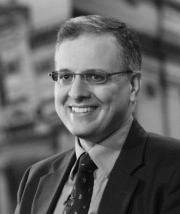Many students do not recognize the Polling Institute as one of the University’s reputable gems, or the opportunities it has to offer.
The Institute offers numerous opportunities for students to gain experience concerning the way polls are administered and data is analyzed.
Introduced to the University in 2005, the Polling Institute was established in order to act as a nerve center for the study of public opinion on important local, state, regional, and national issues.
Patrick Murray, Director of the Polling Institute, explained that the Institute’s mission is to produce involvement externally and internally from the University. The Institute incorporates the assistance from different departments on campus to administer polls.
The Polling Institute’s activities include research services for government agencies as well as private organizations. The poll results assist with policy analysis, measuring effectiveness and assessment.
In 2005, the Institute was named a winner by New Jersey Politifax for the accuracy of its predictions prior to the 2005 gubernatorial election. However, Murray stressed that the polling the Institute conducts is unique in that it is not merely political candidate polling.
Rather, the Polling Institute works to ensure that the voice of the public is heard concerning relevant social issues and standards that everyday people are concerned about.
“The Institute is unique in that it covers quality of life issues that affect New Jersey residents as well as residents up and down the East Coast,” Murray said. For example, the Institute released a survey this past April which measured the quality of life in New Jersey.
“We want to know what makes New Jersey tick,” Murray said. Roughly 3,000 residents in the state were polled, raising about $100,000 of revenue for the University.
While the Polling Institute is funded by the University, it brings in external money from partnerships with media outlets that use the researched data.
A strong partnership is held between the Institute and the string of Gannett Company Inc. newspapers, which include the Asbury Park Press. Results of the Institute’s polls are also mass mediated by New Jersey 12 News and 101.5 Radio, among many other outlets. Polls are also distributed throughout the East Coast region from New York to Virginia.
For instance, the Institute conducted a survey in 2009 in conjunction with the Urban Coast Institute which measured the attitudes of residents in New York, New Jersey, Delaware, Maryland, and Virginia living along the coast line.
Polls are not only conducted by professional researchers, but students assist with the process, as well as supplying background research, organizing data, and forming ways to represent it.
Murray explained that polls can include anything from measuring the effectiveness of a social service program to analyzing the effectiveness of a municipality’s website.
“Students should be noticing more opportunities from the Institute,” said Murray.
He explained that six years ago, the mission of the Institute was to get its name out to the public and get people interested. Today, the Institute works to gain interest internally throughout academic departments and create opportunities through cross discipline work.
Murray also explained that he is currently looking into introducing a class that would give undergraduate students the opportunity to work with a client and form a research project with the Polling Institute.
Dr. Kevin Dooley of the Political Science Department said, “I think a class that incorporates the Polling Institute would be a great addition to the Political Science curriculum.”
Fred Strahl, a senior political science major said, “A class involving real-life survey analysis of important issues would be extremely beneficial because it could possibly fulfill the experiential education requirement and would provide students with both the knowledge of how polling works and the experience of working with an institution that serves an important role in the political process.”
“Our aim is to encourage different departments to work together,” Murray said. “This allows the campus to become larger internally. We want people to know the University as a place with many experts in various fields.”
Along with serving as the founding Director of the Polling Institute, Murray also writes articles and op-ed pieces and is a frequent guest speaker on news stations throughout the state.
Murray was named Pollster of the Year by politickernj.com and one of the 100 most influential people in New Jersey politics. With his support, the Institute has grown to become a valued survey research center due to its quality of life issues and meticulous tracking.
PHOTO COURTESY of monmouth.edu


